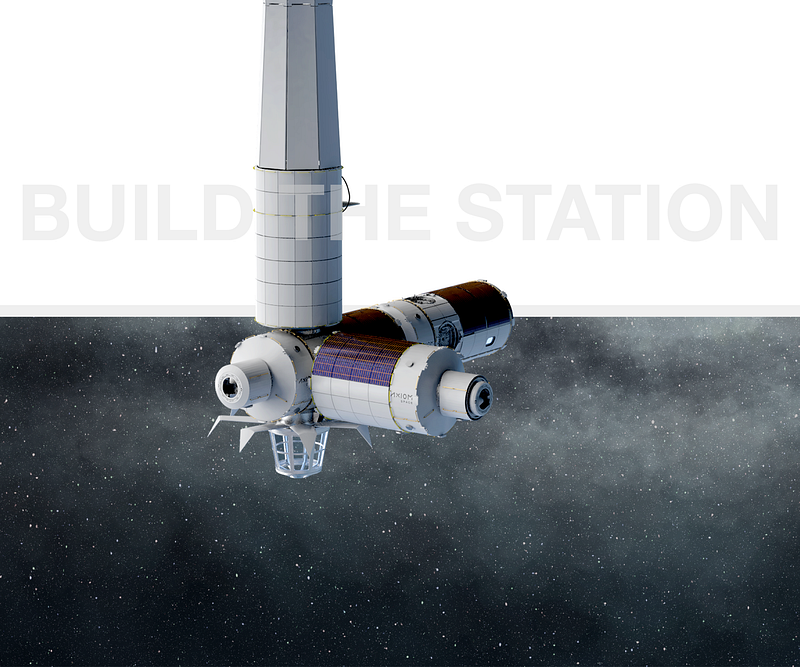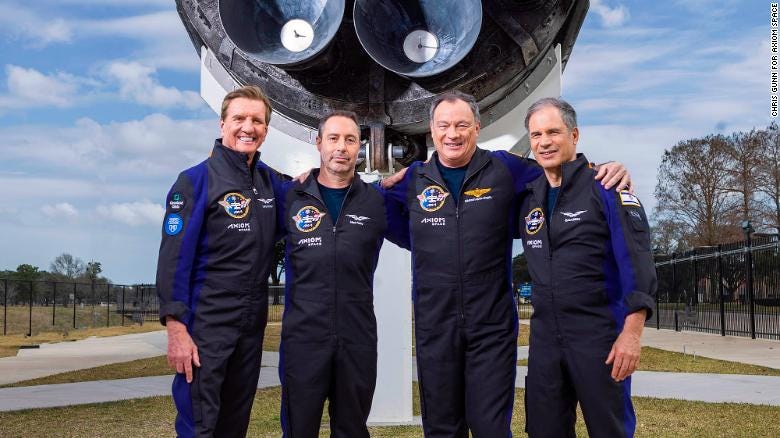# The New Era of Commercial Space Stations: Axiom Space's Vision
Written on
Chapter 1: The Dawn of Commercial Space Stations
We are on the brink of a transformative phase in space exploration, where private enterprises are stepping up to create space stations in orbit around Earth. The International Space Station (ISS) has been operational for nearly 24 years, but its decommissioning is anticipated in the early 2030s. Unfortunately, there appear to be no plans for a successor, which would leave China’s Tiangong Space Station as the sole national space station in Low Earth Orbit at that time. Meanwhile, NASA is expected to have its Lunar Gateway station positioned around the Moon.

A rendering of the modules Axiom Space will add to the ISS (Credit: Axiom Space)
However, this does not signify the end of space stations; rather, we are entering an era where they will be predominantly owned and managed by private companies. Among these ventures, Axiom Space stands out as a pioneer aiming to establish the first commercial space station. Founded in 2016, they plan to launch the initial segment of their station by late 2024, just eight years after their inception! The initial modules will be integrated with the ISS before being detached once the ISS is retired. These will form the core of the Axiom Space Station, which will include a crew habitat, a research and manufacturing facility, and a large observation window to gaze at our planet.

What the Axiom Space Station is planned to look like (Credit: Axiom Space)
Axiom Space’s primary objective is to leverage insights gained from research in microgravity to create groundbreaking technologies. Previous research conducted on the ISS has already led to numerous innovations, and Axiom Space aspires to replicate this success. Their projects could range from 3D printing human organs to creating advanced alloys.
At this point, you might wonder: Will they actually succeed? This is a complex question, influenced by various factors, but let’s examine what we do know.
Firstly, Axiom Space was established by Michael T. Suffredini, a former program manager for the ISS. His experience suggests he possesses the expertise needed to construct a space station. Moreover, the leadership team includes many former NASA employees, among them Charles Bolden.

The crewmembers of the Ax-1 Private Astronaut Mission (Credit: CNN)
Secondly, Axiom Space has already made strides towards its mission. They offer private astronaut missions to the ISS and successfully completed their inaugural mission, the Ax-1. This mission, led by former NASA astronaut Michael López-Alegría, marks a significant milestone. Their second mission is slated for launch in late 2024 or early 2025.
Given these credentials, I feel optimistic about Axiom Space’s prospects. While we must wait until 2024 to see if they realize their vision for a commercial space station, I believe the future is bright for this ambitious company. I eagerly anticipate the day when projects like the Axiom Space Station take to the skies and transform the space industry.
Chapter 2: Axiom Space's Ambitious Goals
The First Commercial Space Station Is Running Into Problems - YouTube
This video discusses the challenges faced by Axiom Space as they strive to bring their commercial space station to fruition.
SpaceX Reveals Plans For A Commercial Space Station! - YouTube
In this video, SpaceX outlines its vision for a commercial space station and the implications for the future of space exploration.
Sources
Axiom Space, “Axiom Station”
Axiom Space, “Research”
Axiom Space, “Why Space?”
Thorbecke, C, “What to know about Axiom Space, the company behind the first all-private mission to the ISS”, CNN Business, 8 Apr 2022